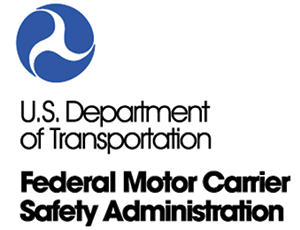Senior Reporter
Security Experts Warn Truckers About Loadboard Scams, ‘Inspired’ Terrorist Attacks
MEMPHIS, Tenn. — Technology and smart, hard-working criminals have combined to keep loadboard fraud rampant, according to a senior investigator with the Federal Motor Carrier Safety Administration.
Speaking to trucking executives at a fraudulent theft practices session here Nov. 14, Shannon Chelf, a Kentucky-based FMCSA fraud investigator, said he has been chasing advance fuel and double-brokering scams for the past 18 months.
“This old broker loadboard fraud has been around forever,” Chelf said. “But there’s a new spin on it because technology has allowed it to happen. It’s a nasty scam.”
Chelf spoke during a national safety and security conference sponsored by American Trucking Associations’ Safety Management Council and Transportation Security Council.

He said these days there is extensive personal and company information that can be easily obtained by bad guys.
“Google has made things very convenient for those of us that are law-abiding,” Chelf told executives. “And, they’ve made things very easy for the criminal element.”
The scammers often strike mom-and-pop trucking companies, “the guy that has one to five trucks,” he said.
Over the internet, the loadboard fraudsters can obtain insurance paperwork, Department of Transportation authority information, even W-9 documents — a request form for a taxpayer identification number and certification.
They then use the information for anywhere from a few days to a few weeks, and move on to the next potential victim before investigators like Chelf can identify them by locating the checks they cashed.
“Their goal is to get a rate confirmation,” he said. “Once that happens, there is just no way to keep from being hurt.”
He’s convinced that loadboard fraud is a $100 million business in the United States.
“I say that based on the fact that I personally have attributed $10 million to them,” Chelf said. “And every day it seems like their operations are getting bigger. This is the gift that keeps on giving.”
He said because the scammers have learned that investigators are going after the checks they have recruited others to case them.
In a separate security session Nov. 14, David Cooper, an industry engagement manager with the Department of Homeland Security's Transportation Security Administration, encouraged trucking executives and their drivers to report things they observed on the nation’s highways that “don’t look right.”
“They should understand that in today’s environment that they should tell somebody,” Cooper said. “
To respond to trucker tips, TSA created the First Observer Plus program, a security awareness program designed to promote surface transportation security within the U.S. by training transportation professionals to “observe, assess and report potential terrorist activities.”
“Typically what we see in the United States is that the majority of people are motivated or inspired and eventually radicalized through the internet,” Cooper said.
In a Nov. 15 session at the conference on being prepared for violence and other threats, Bruce Townsend, senior vice president of global security for FedEx Corp., stressed the need for trucking companies to create a crisis management team before bad things happen.
“Our risk environment today is characterized by volatility, uncertainty and complexity,” said Townsend, a former assistant deputy director of the Secret Service. “And we should continue to expect that.”
Those risks include targeted or workplace violence, cyberterrorism, catastrophic national disaster, and unknown factors — things that are not happening today but could in the future, Townsend said.
Many workplaces have been victimized by violence, including businesses, the government and even churches.
“But for those of us in this room in our industry it really has become a different discussion. And that is this: The use of vehicles as terror weapons by Islamic state-inspired actors has added a new dimension to the terrorist threat,” Townsend said.
He added, “Promotion of vehicles as terror weapons has occurred by the Islamic state in their online magazine, which contains propaganda, martyr tributes, battlefield news, attack tactics and strategies.”




